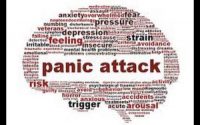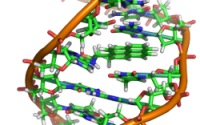School and EDS

And HSD too. Always. Anytime I say EDS, I consider the forms of Hypermobility Spectrum Disorders (HSD) to automatically be included. Because, much like how Asperger’s got described and separated out of Autism Spectrum Disorders in the 1990’s (it has since been folded back in and the bar raised a bit since 2015 to be clear), I feel like the HSDs will ultimately be seen to one day be all part of the same big connective tissue disorder soup and get folded back in too. But it’s sold separately, some assembly required still – for now. But I digress.
(Scroll to the bottom and skip this intro if you just want the list.)
It’s mid-August 2024 as I type this, and I regularly tweet resources for parents of kids with EDS, but I just realized I’d never blogged about it. And I don’t really have much to say, as I’ve never been a parent. And as a quasi-orphan myself (absentee parents), I got by on sheer “piss and vinegar” (determination, strong will) myself, so I don’t think I’m a good advisor about what works. (I don’t recommend the “piss and vinegar” method either – I just traumatized myself and burned out, though it ultimately worked.) But, I realized I could compile the best links and advice others have shared for everyone just in time for “Back to School” (autumn) in the US at least. And for all ages.
Bear in mind your child may very likely be neurodivergent in one or more ways (autistic, ADHD, dyslexic, dysgraphic, epileptic, sensitive, more), and need support around that, even if they do not have (m)any physical issues now, or ever. And others may not exhibit much or any neurodivergence (now or ever), but have a lot of physical issues whether they are easily diagnosed or not. Other kids may have a combo. Just… keep an open mind. And… consider that you (mom or dad or sibling) may also have some of these issues too, even if you seem to be “functioning” (hey, you’re family after all).
Quick terminology note:
- Humans (people, plural as a group) are neurodiverse. Neurodiversity describes the feature of brains and the rest of our neurology varying from each other, all types, both those considered “neurodivergent” and those considered “neurotypical”.
- I, you, he, she, they (an individual, the singular) is neurodivergent. Many with EDS are neurodivergent in one or more ways. We are often neurodivergent.
- Neurodivergence just refers to brains differing from the socially accepted “norm”, or those considered “neurotypical”, as well as from each other, no matter the dominant neurotype. (Consider shifting this point of view.) This umbrella term can include but is not limited to being autistic, ADHD, dyslexic, having dyscalculia (trouble with numbers), dysgraphia (trouble hand writing), dyspraxia, synesthetic, epileptic, having Tourette’s, or OCD, and much more. Many fall into the trap of thinking it just refers to autism, and or ADHD. And only to perceived “deficits”. (There can be strengths like visualization skills, photographic memory, and more.) Please avoid this pitfall if you can. Yes, there’s a lot of misinformation and misuse of the terms floating about the internet now days.
- “Neurodiversity” is not a synonym for neurodivergent or neurodivergence to be clear. Neurodiversity describes ALL humans, including neurotypicals to be really clear. If you are meaning those who are not considered typical for any reason (not just autistic or ADHD, but also dyslexic, bipolar, etc.), then speak of neurodivergent people and neurodivergence.
- “Allism” is a term used to describe anyone who is not autistic, whether they are neurotypical or not. E.g. someone who is dyslexic, or has Tourette’s or OCD may be called “allistic” if they are not also autistic. And a neurotypical person (NT) would be considered allistic too. But neurotypicals are a subset of allistic people to be clear. Lots of neurodivergent people are allistic. (Not autistic.)
Some observations from online communities I’ve observed over the years: many really dislike the term “Special Ed” (often abbreviated “SPED”) as it seems to imply students are some how less than their peers. Kids put in special ed classrooms and spaces often end up bullied extra as they are singled out this way. But, it’s the industry standard from what I can see, so the term is probably not going away soon, at least not in the US. (Please apprise me if this has changed, late 2024.)
Also, accommodations for ADHDers end up helping everyone do better. Truly. Extra reminders… help refocusing… visual cues, audio cues, more. By supporting your most scattered minds, you will help everyone along the path to academic success. But do be aware that sensory needs may differ: some students may need a quieter environment if possible. And incorporate body and mind breaks whenever possible. (We can hyperfocus to a dangerous degree sometimes, and some can focus better while moving.)
Try not to “helicopter parent”, that is, hover over your kids too much. Sure, support them at first of course, but, if you do too much for them, you can inadvertently instill “learned helplessness”, and they won’t function for themselves, or not very well later one when you’re not around. (Lots of students struggle once they hit college, and you’re not there to help.)
Help them to scaffold (support) themselves in whatever way helps most: routines, reminders and workflow apps on a phone or tablet, post-it note reminders, calendars with color coding, hooks for keys and backpacks, setting clothes out the night before, pre-packing lunch the night before, etc. (Whatever works for them and you, no matter what some shiny marketer tries to tell or sell you about their “program” or method.) Also, checking out any new school environments ahead of the first day of school can really help.
And, let them blossom in their own time – just because someone may not be speaking yet, or not much, doesn’t mean they won’t later. (Some of us come out in full sentences when we do and even learn other languages fluently, but not all of course.) And, even if they don’t ever speak using their mouth, it doesn’t mean they don’t comprehend speech, and language and understand higher level concepts still.
You may just need to bridge the communication gap with some Augmentative and Assistive Communication (AAC) devices (tablets, PECS, phones, text to speech, more.) Keep an open mind. And presume competence until you can verify otherwise. Often times our bodies betray us as both Ido Kedar and Damon Kirsebom can tell you.
Kids with EDS or HSD may need physical rest breaks, and a chance or spot to lie down if their Postural Orthostatic Tachycardia Syndrome (POTS) or MCAS has acted up. (POTS lends to feeling dizzy or even fainting from being upright too long with low blood volume, triggering the tachycardia to help rush blood to the head for survival.) You might want to be sure the school nurse is aware of their chemical and food sensitivities and have rescue meds on hand. (Stress and exertion are big triggers of mast cells, which can lend to POTS and other dysautonomia symptoms.) Kids may need snacks and hydration breaks to help manage this.
One of my young friends has needed either a parent or nurse on hand at all times, as he literally doesn’t sense or detect his drastic blood pressure and oxygen drops and spikes and silent seizures. He also has a service dog helping to detect these now. He just doesn’t have the enervation to feel these things. But when he’s properly supported, he aces math and other classes just fine and is now a junior in high school for the win. He just can’t run track or play contact sports. And has lots of doctor’s appointments alas.
Yes, it can be daunting, pulling together IEPs and 504 plans to make sure your kids get the support they need. But try not to let it overwhelm you. (Ha, easy for me to say, I know.) Find groups for parents of kids with disabilities similar to yours. I like to say “where there’s a wheel, there’s a way”, which is a take-off on “where there’s a will, there’s a way”. We kind of need both with EDS, right? (Wheels and wills.)
And, ultimately, some may need to be home-schooled, and that is also okay if you are able to manage it, which not all parents can do if they work. And there are some online school options that may work for others. Bottom line: find what works for YOUR child and you, not the school. It is their mental health that may suffer after all.
Here are the resources I have so far:
- The EDS School Toolkit via EDS UK and the Hypermobility Syndromes Association (both UK based)
- Back to School Prep Page 2024 via CPP
- Tríptico para familias sobre ámbito educativo via ANSEDH 2024
- 4 Tips on How To Navigate School as a Student with Ehlers-Danlos Syndrome (2023) via CPP
- Two Students Share How They Navigate School With EDS (2023) via CPP
- When Formal Education with Ehlers-Danlos Syndrome Isn’t Possible: 3 Tips – (2023) via CPP
- Health Coach For College Students? Yes! (Ehlers Danlos Syndrome Edition) 2024 Dr. Paula Bruno
- Ehlers-Danlos Society Medical School Fee Scholarship 2024
- Wondering why your child is struggling? Take Note
- My Autism Resources page (chock full of links about all things autistic and more)
- An Autistic Education (Kieran’s experience of school, along with that of his autistic children)
- Help Hope Live’s Beginner’s Guide to Service Dogs Nov 2024 (video)
I am sure there are other resources I just haven’t learned about. Please feel free to share them in the comments below and I’ll try to add them above. As Dr. Cortney Gensemer from the Norris Lab proves, you can achieve great things, including becoming an EDS researcher while having EDS, with the proper support. There are even a handful of medical doctors with EDS around the world. (Heidi Collins, MD, Jaime Bravo, MD, Chile, Alyssa Zingman, MD.) And more on the way thanks to UHNM Charity. We can certainly use more!
Updated December 27, 2024


